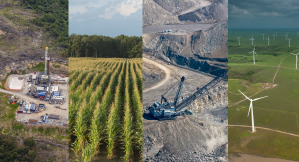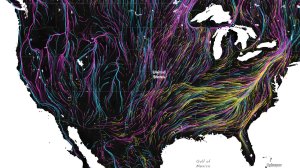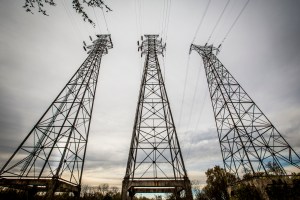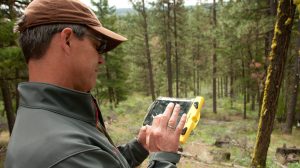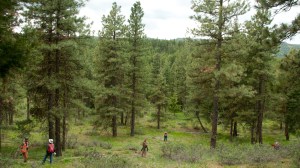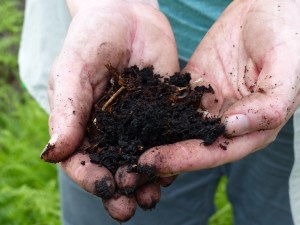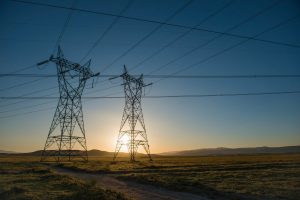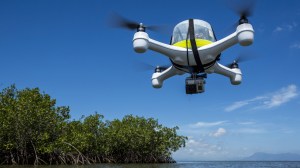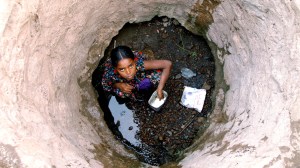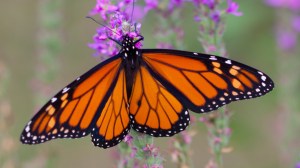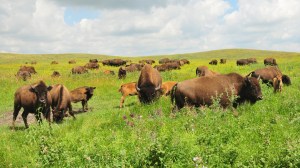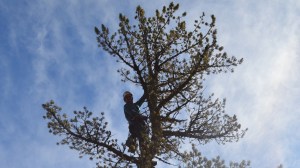Discover stories in Climate Change
Energy Sprawl is the Largest Driver of Land Use Change in the U.S.
The development of new land area required for energy production is, and will likely continue to be, the largest driver of land use change in the U.S. for the foreseeable future.
Migration in Motion: Visualizing Species Movements Due to Climate Change
Climate change is already forcing species to migrate to cooler climates, and Conservancy scientists are mapping these predicted migrations.
Progress in the Search for Better Battery Tech
A new paper by Conservancy NatureNet Science Fellow Won-Hee Ryu may ultimately help scientists overcome one of the most intractable technological obstacles to wholesale adoption of clean energy.
Technology to the Rescue for Foresters in the Thick of It
Managing forests to remain resilient through wildfire, drought, and forest pests in a changing climate is complicated. New technology is helping forest managers to restore forests to a healthy mix of spatial diversity.
Maintaining Healthy Forests Takes More than Planting Trees
Conservationists should plant more trees, but that’s not the whole story. America’s forests must be resilient to survive wildfires and invading forest pests in a changing climate.
A Dirty Solution to Cleaning the Atmosphere
Soils have twice as much carbon as the atmosphere. Which means there’s a lot of interest in figuring out if soil can hold even more carbon—to help fight climate change.
R&D for a Future Powered by Clean Energy
Building a Better Battery: NatureNet Science Fellow makes a breakthrough in the effort to build cost-effective and energy-efficient ways to store clean energy on the world's power grids.
10 Innovations That Are Changing Conservation
Around the globe, conservationists are employing the latest technological advances to make a difference for people, wildlife, oceans, forests and clean water.
10 Unexpected Impacts of Climate Change
Climate change will affect your health, your sports, even what you drink. A look at some of the more unexpected impacts.
The Four Biggest Hazards Facing Monarch Butterflies, and How You Can Help
A recent scientific paper argues that monarch butterflies are at risk of “quasi-extinction.” But what does this mean? Our blogger breaks down the issues facing butterflies.
The Incredible Shrinking Bison, an Unexpected Impact of Climate Change
Shrinking bison? One of the unexpected impacts of climate change is bison changing their diets. And it could in turn affect how we manage the prairie.
Harvesting Whitebark Pine Cones to Save a Forest
Near the top of the Rockies, crews climb trees and risk danger to collect pine cones. But this isn’t an extreme sport: their work is key to saving one of the West’s iconic trees.
